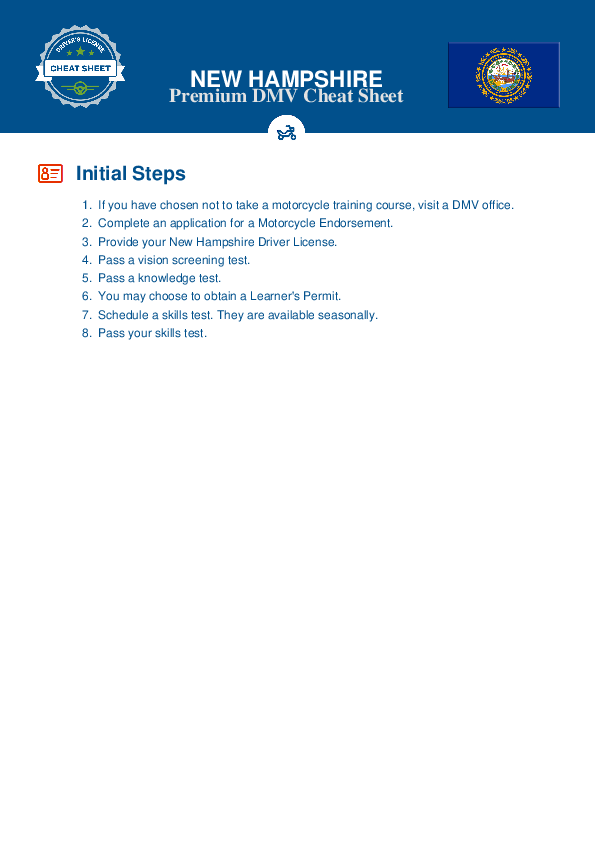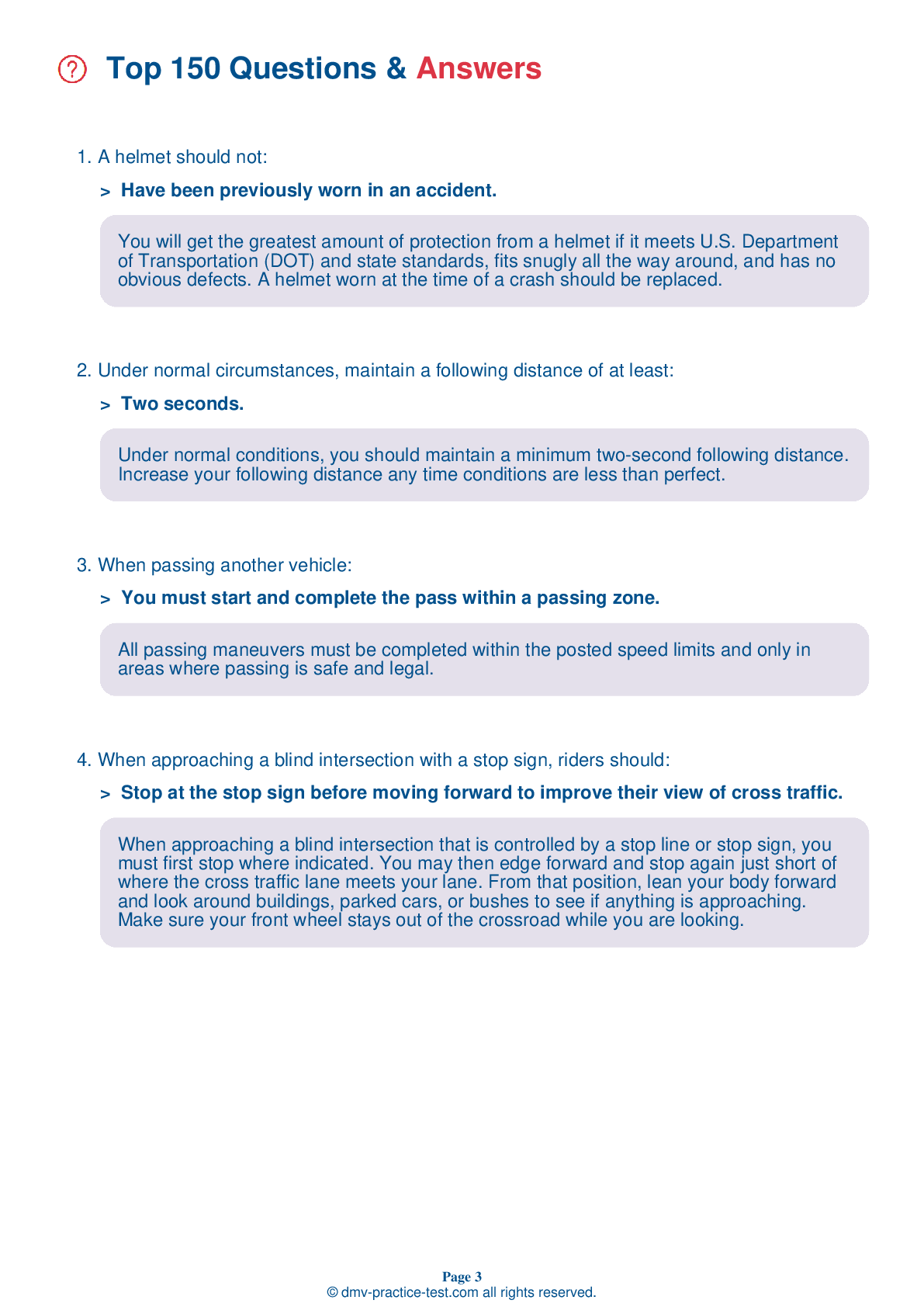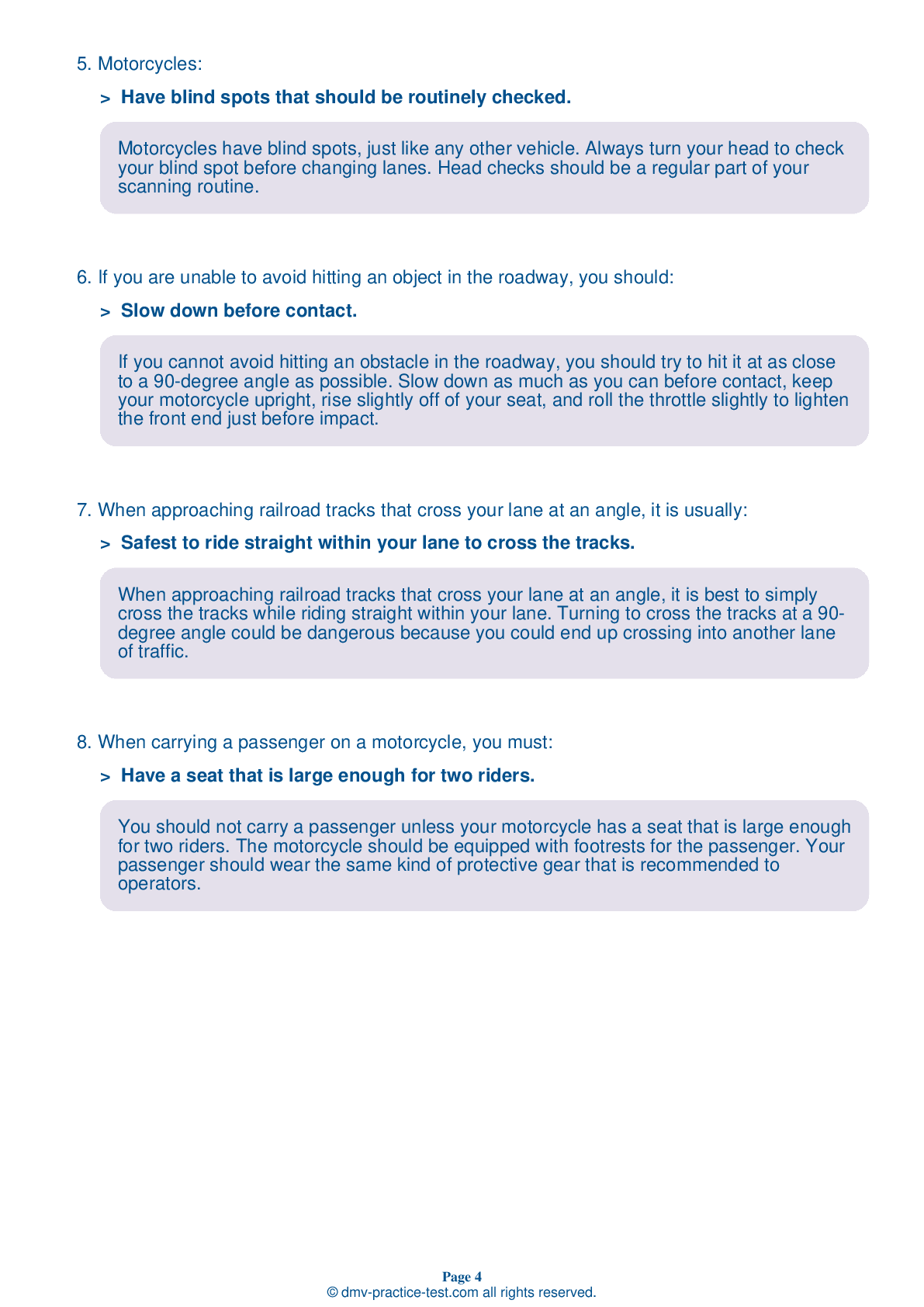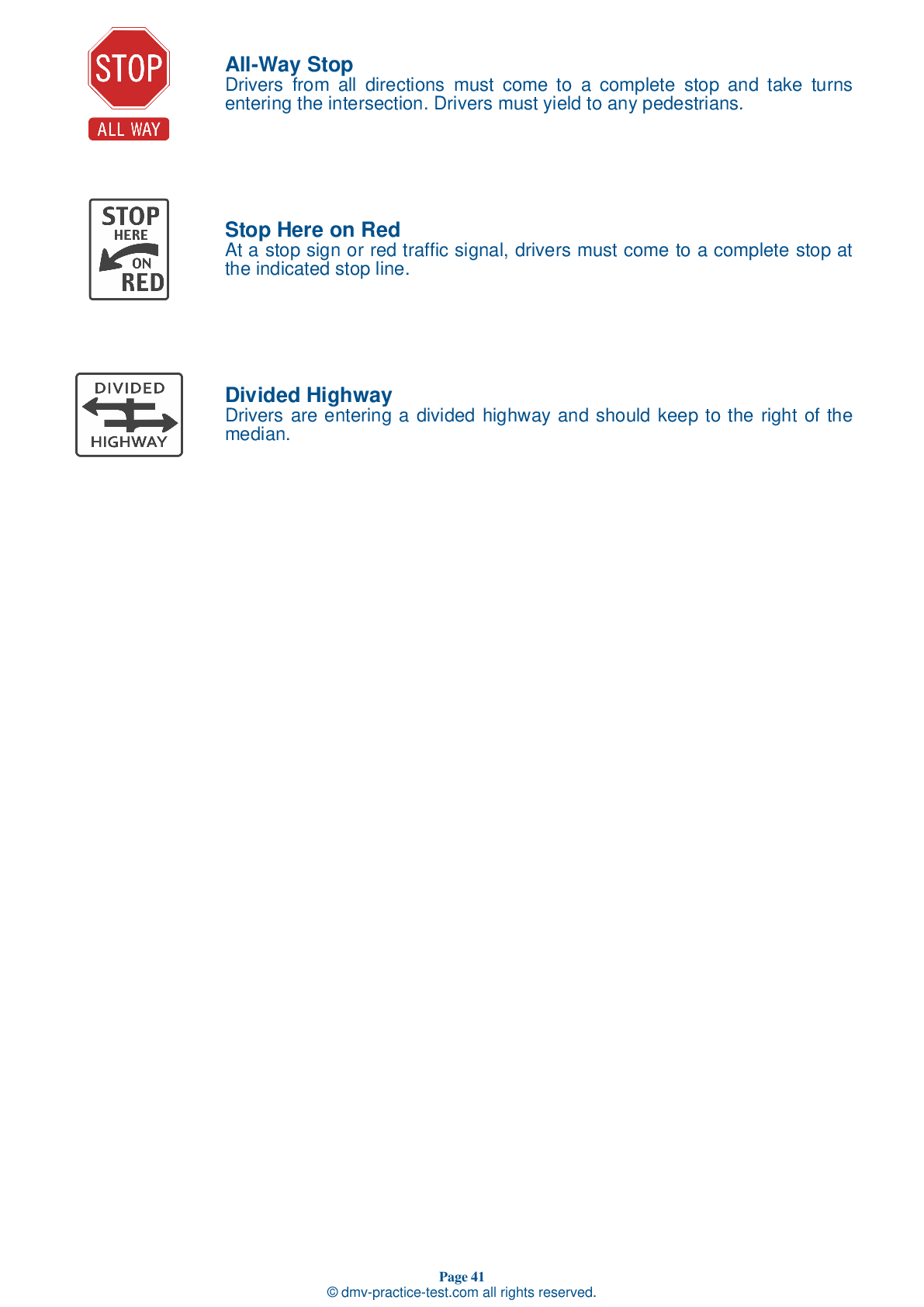Motorcycle Test | License NH 2026 | FREE Online Practice! #1 Page 2 of 4
Take this FREE motorcycle test (license in NH 2026) to check your knowledge of the road rules. To improve your results, download a motorcycle handbook online, study theory, and practice for free on our website. Still worried about how to get a motorcycle license in New Hampshire in 2026? Check our website for more sample tests, train as much as possible, and boost your grades!
7 . What could happen if a motorcyclist takes a turn too fast?
Riders often try to take curves or turns too fast. When they can’t hold the turn, they end up crossing into another lane of traffic or going off the road. Riders also often overreact and brake too hard, causing a skid and loss of control.
8 . To cross tracks that run parallel to your lane, you should:
To safely cross trolley tracks, railroad tracks, ruts, or pavement seams running parallel to your lane, move to a lane position that will allow you to cross them at an angle of at least 45 degrees. Then, make a quick, sharp turn. If you try to edge across, the tracks or seam could catch your tires and throw you off balance.
9 . Before riding, a motorcycle operator should check the clutch. A properly working clutch should feel:
Check your clutch and throttle before riding your motorcycle. The throttle should snap back when you let go and the clutch should feel tight and smooth.
10 . On a slippery surface, you should not:
To ride safely on a slippery surface, you should use both brakes when slowing or stopping, reduce your speed, and avoid making sudden moves. Be alert to oily areas, dirt, gravel, shaded areas, and bridges, as these surfaces are more likely to be slippery than others.
11 . When the road is slippery, maintain a following distance of at least:
An expanded cushion of space is needed if your motorcycle will take longer than normal to stop. If the pavement is slippery, if you cannot see through the vehicle ahead of you, or if traffic is heavy and another driver may try to squeeze in front of you, open up to a minimum three-second following distance.
12 . When riding in a staggered formation, the third rider in the group should ride _______ behind the leader.
In a staggered formation, the lead rider should ride on the left side of the lane, with the second rider one second behind on the right side of the lane. The third rider should be on the left side of the lane, two seconds behind the lead rider.
See the exact questions that will be on the 2026 New Hampshire DMV exam.
99.2% of people who use the cheat sheet pass the FIRST TIME
Jeneen was tired of paying $5/gallon. She got herself a scooter that required the motorcycle license. She studyed the motorcycle test cheat sheet and passed her test the next day!
Christopher tells us how he knew nothing prior to obtaining the motorcycle study guide, and he only got one question wrong because he clicked on the wrong answer by mistake.



